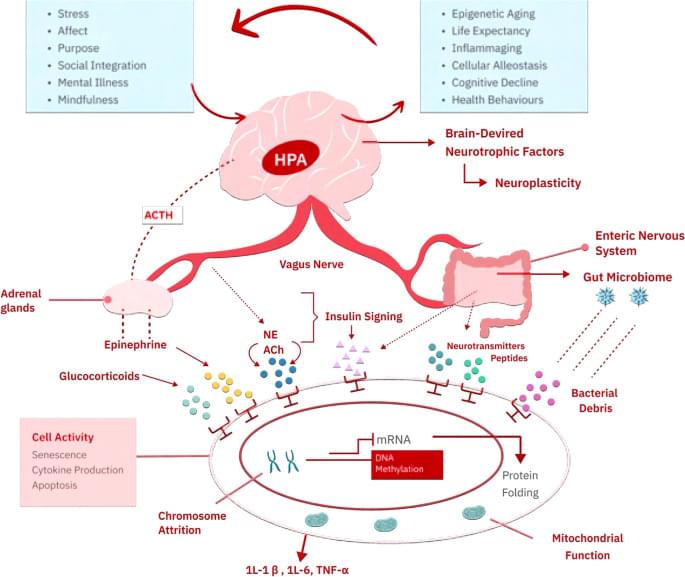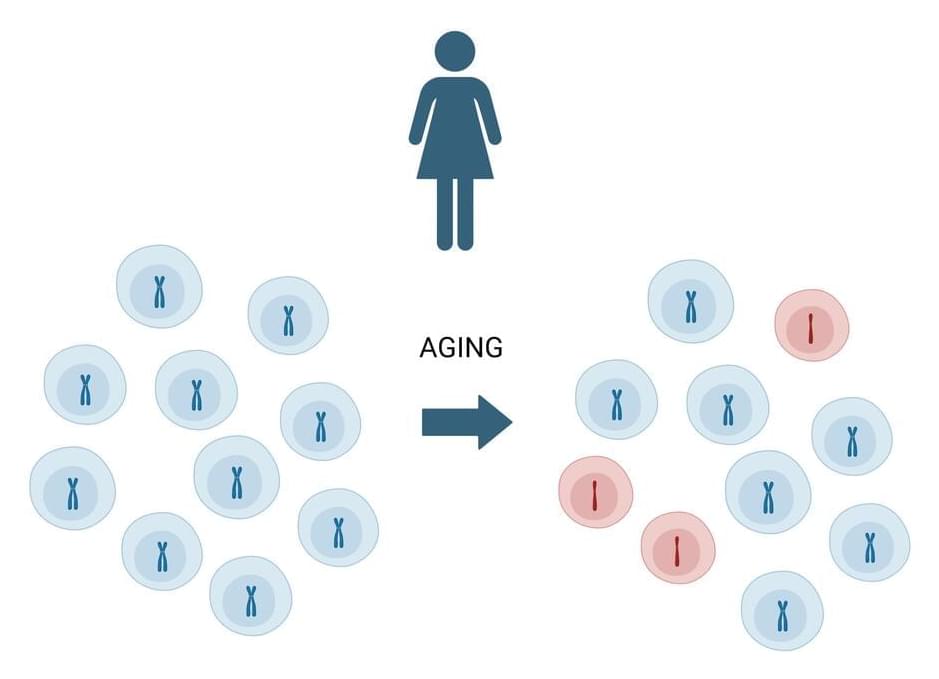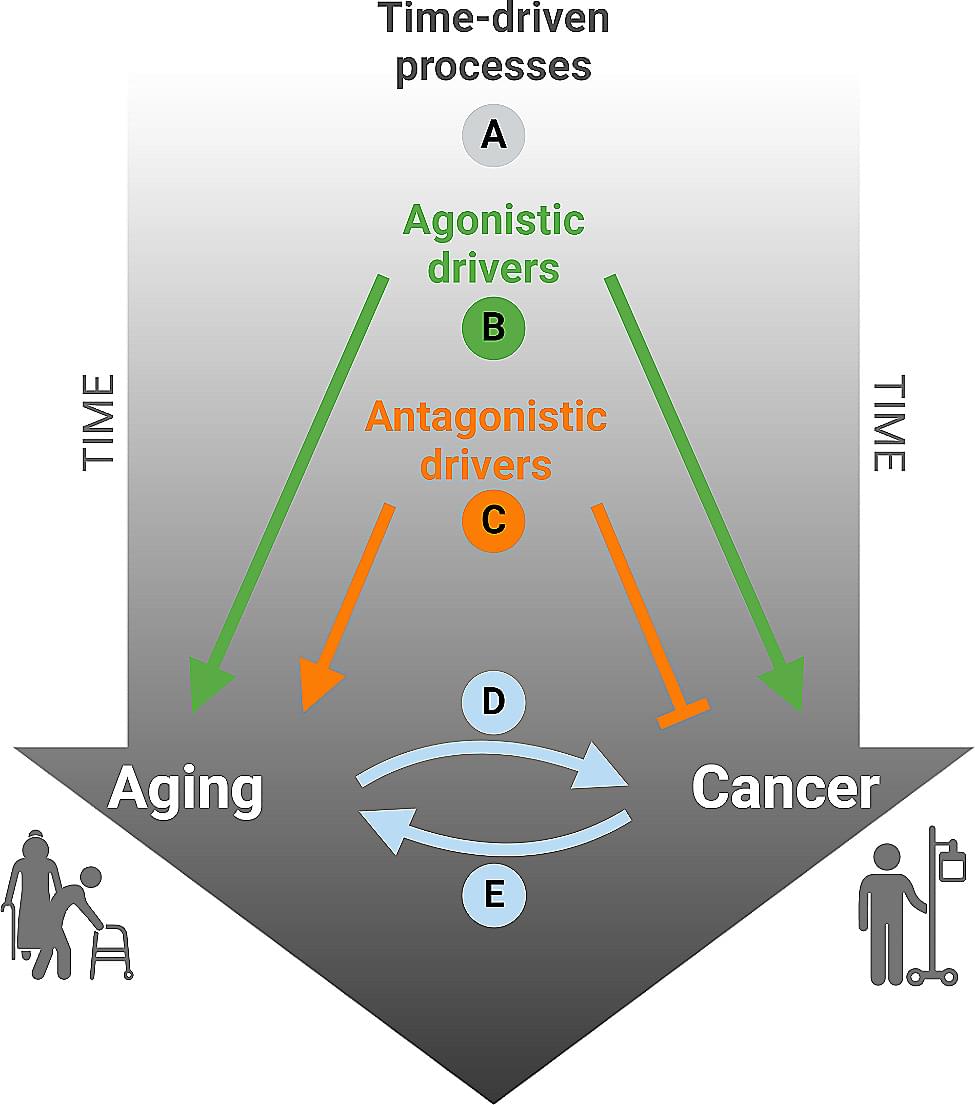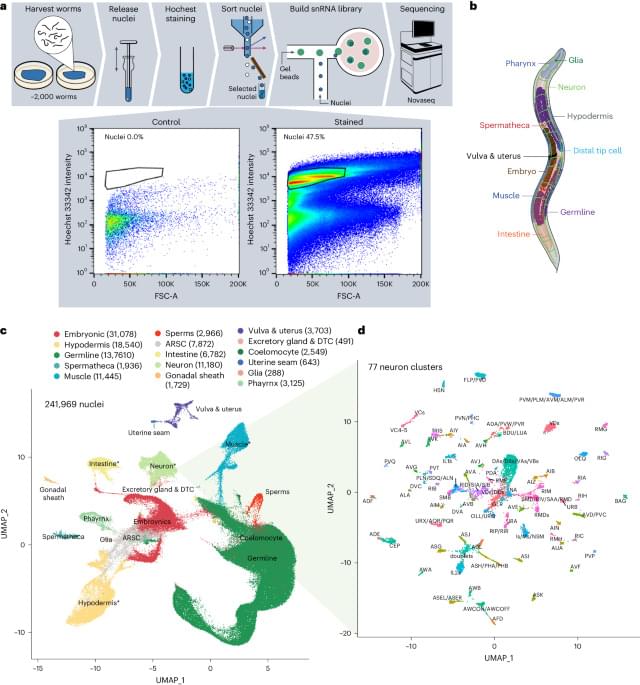Researchers in Budapest have been studying worms to slow down or stop ageing in humans by researching transposable elements in our DNA.



Harvanek ZM, Fogelman N, Xu K, Sinha R. Psychological and biological resilience modulates the effects of stress on epigenetic aging. Transl Psychiatry. 2021;11:1–9.

Scientists have discovered that CAR T cells, traditionally used in cancer treatment, can be engineered to fight aging by eliminating senescent cells, offering a promising single-dose, lifelong treatment against aging-related diseases.
The fountain of youth has eluded explorers for ages. It turns out the magic anti-aging elixir might have been inside us all along.
Cold Spring Harbor Laboratory (CSHL) Assistant Professor Corina Amor Vegas and colleagues have discovered that T cells can be reprogrammed to fight aging, so to speak. Given the right set of genetic modifications, these white blood cells can attack another group of cells known as senescent cells. These cells are thought to be responsible for many of the diseases we grapple with later in life.

Centenarians, once considered rare, have become commonplace. Indeed, they are the fastest-growing demographic group of the world’s population, with numbers roughly doubling every ten years since the 1970s.
How long humans can live, and what determines a long and healthy life, have been of interest for as long as we know. Plato and Aristotle discussed and wrote about the ageing process over 2,300 years ago.
The pursuit of understanding the secrets behind exceptional longevity isn’t easy, however. It involves unravelling the complex interplay of genetic predisposition and lifestyle factors and how they interact throughout a person’s life.
Join us on Patreon! https://www.patreon.com/MichaelLustgartenPhDDiscount Links: Epigenetic, Telomere Testing: https://trudiagnostic.com/?irclickid=U-s3Ii2r7x…



Exhibit apparent links that we will examine in this review. The null hypothesis that aging and cancer coincide because both are driven by time, irrespective of the precise causes, can be confronted with the idea that aging and cancer share common mechanistic grounds that are referred to as ‘hallmarks’. Indeed, several hallmarks of aging also contribute to carcinogenesis and tumor progression, but some of the molecular and cellular characteristics of aging may also reduce the probability of developing lethal cancer, perhaps explaining why very old age ( 90 years) is accompanied by a reduced incidence of neoplastic diseases. We will also discuss the possibility that the aging process itself causes cancer, meaning that the time-dependent degradation of cellular and supracellular functions that accompanies aging produces cancer as a byproduct or ‘age-associated disease’


Washington state leads the nation in apple production, and in 2022, the industry contributed more than two billion dollars to the U.S. gross domestic product. Throughout Washington, farms employ anywhere from a dozen to hundreds of workers each year for orchard operations, including for pollination, pruning, flower thinning and fruit harvesting. With an aging population and a decrease in migrant farm workers, however, farmers have struggled to meet their needs for workers during harvest season.
In recent years, researchers have started developing robotic apple harvesting systems, but the ones that have been developed are expensive and complex to use in orchards.
Ninatanta, who grew up in Yakima, Washington, picked fruit alongside his parents during his childhood. When he began his work with Luo on a robotic apple gripper, he had his parents videotape their work, so he could model his gripper on their handiwork.